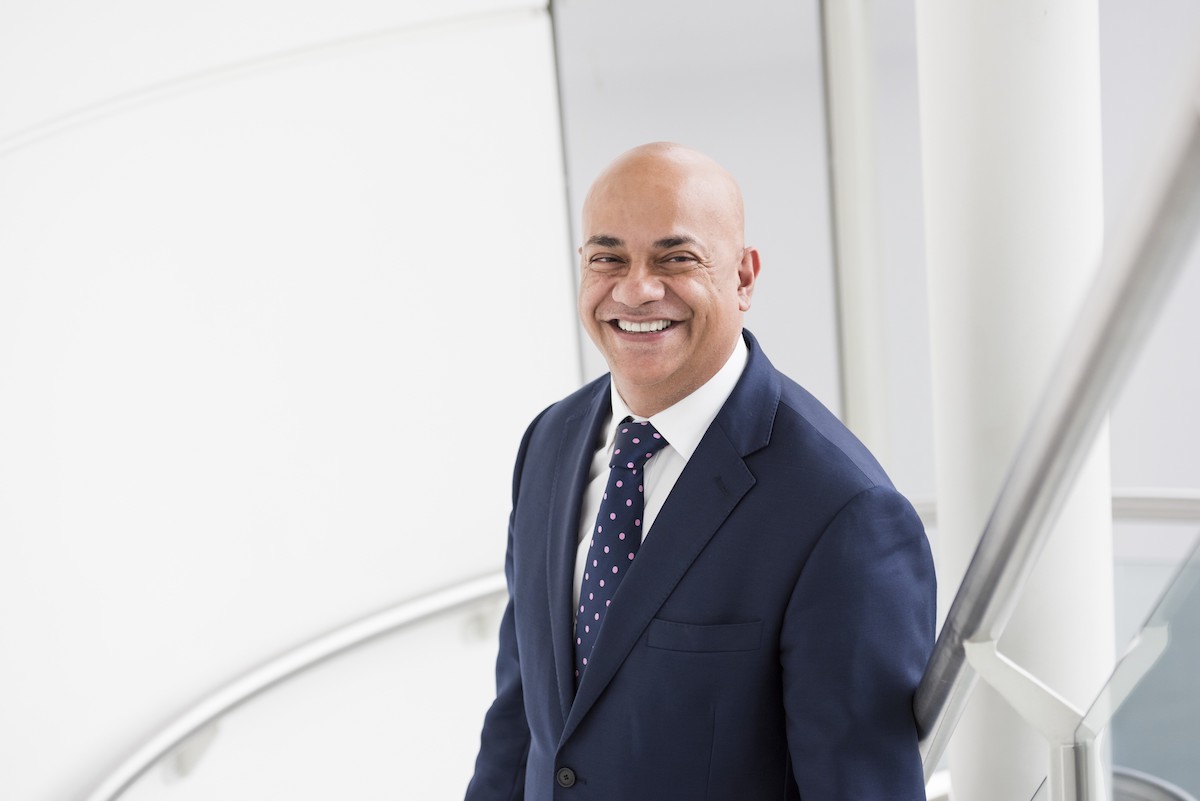Hitesh Thakrar is appointed Chair of the South London Academic Health Science Network
Hitesh Thakrar (Chemistry, 1983)
Hitesh Thakrar (Chemistry, 1983) has recently been appointed Chair of the Health Innovation Network (HIN), which is the NHS’s South London Academic Health Science Network (AHSN). The AHSNs were set up in 2013 by NHS England to spread innovation in healthcare at pace and scale. There are 15 AHSNs nationally split into regions, with the HIN focusing on South London. The HIN collaborates closely with King’s, local hospitals, authorities and charities to drive innovation in South London.
Hitesh is an experienced investor in the technology sector, having spent more than 30 years investing in public equities in the life sciences, information technology and innovation sectors. Here, Hitesh reflects on his new role and his time at King’s.
In what ways did King’s prepare you for your career?
My course incorporated elements of business management and economics, as well as challenging courses in industrial chemistry, advanced mathematics and quantum chemistry; this breadth of foundational knowledge has enabled me to build a successful career across business and science.
What are the greatest challenges facing healthcare today?
Maintaining a healthy, ageing population as demographic patterns trend to a higher average age in developed countries and areas such as China is the biggest challenge. Secondly, the causes of mortality remain the same – namely, heart disease, cancer, chronic obstructive pulmonary disease (COPD), diabetes and dementia. Finally, funding next-generation therapeutics and social care services will remain a challenge, and opportunities to use patient and medical data to drive insights are crucial as we move to an ageing population where the demands for social care will increase.
What do you hope to achieve as Chair of the Health Innovation Network (HIN)?
I’m excited to be chairing the HIN. I will need to rely on my colleagues and board members to learn about the NHS ‘plumbing’, which is complex and brings about diseconomies of scale (when a company grows so large the costs per unit increase), given its size. I hope the HIN can bridge service providers and help reduce the complexity to get to better patient care. Another aspiration of mine is to establish close connections with the other 14 AHSNs nationally, as one of our key objectives collectively is to provide an integrated healthcare system. Finally, we are on the cusp of two major innovation cycles in healthcare, and the ability to implement some of these within King’s Health Partners is exciting.
How do you keep an innovative edge in your career?
My background in business and science allows me to understand the fundamentals of innovation and the practical challenges of implementing change using innovation. We’re approaching a renaissance period in the next 20 years where multiple cycles are emerging and converging. Some of this will improve and change society in a positive way, especially the increased use of data in healthcare, but some will have implications, such as the skills required from the job market as we move further towards the use of data science and artificial intelligence (AI).
For example, my roles at pre-series deep-technology fund Newable and UK Research and Innovation (UKRI), backing early-stage start-ups, gave me exposure to areas such as space technologies, agriculture, software and the use of sensors on the internet of things. Working in innovation across multiple industries allows me to keep on top of the pioneering technologies that could drive impact in healthcare.
Digital health technologies, such as sensors and wearable devices, could be used to monitor existing chronic conditions such as diabetes, COPD and Parkinson’s. Using AI, digital pathology (the study of diseases) services can grade cancers to higher levels of accuracy, avoiding unnecessary treatments and misdiagnosis. I hope the HIN will be at the centre of this progress.
